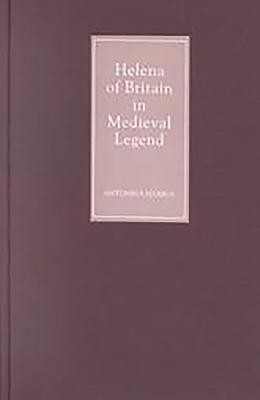
- We will send in 10–14 business days.
- Author: Antonina Harbus
- Publisher: Boydell & Brewer
- ISBN-10: 0859916251
- ISBN-13: 9780859916257
- Format: 16.3 x 24.2 x 2.5 cm, hardcover
- Language: English
- SAVE -10% with code: EXTRA
Reviews
Description
The first study to examine the origins, development, political exploitation and decline of the legend of St Helena, tracing its momentum and adaptive power from Anglo-Saxon England onwards.
St Helena, mother of Constantine the Great and legendary finder of the True Cross, was appropriated in the middle ages as a British saint. The rise and persistence of this legend harnessed Helena's imperial and sacred status to portray her as a romance heroine, source of national pride, and a legitimising link to imperial Rome. This study is the first to examine the origins, development, political exploitation and decline of this legend, tracing its momentum and adaptive power from Anglo-Saxon England to the twentieth century. Using Latin, English, and Welsh texts, as well as church dedications and visual arts, the author examines the positive effect of the British legend on the cult of St Helena and the reasons for its wide appeal and durability in both secular and religious contexts.Two previously unpublished vitae of St Helena are included in the volume: a Middle English verse vita from the South English Legendary, and a Latin prose vita by the twelfth-century hagiographer, Jocelin of Furness. Antonina Harbus is Professor in the Department of English at Macquarie University, Sydney, Australia.
EXTRA 10 % discount with code: EXTRA
The promotion ends in 19d.13:50:11
The discount code is valid when purchasing from 10 €. Discounts do not stack.
- Author: Antonina Harbus
- Publisher: Boydell & Brewer
- ISBN-10: 0859916251
- ISBN-13: 9780859916257
- Format: 16.3 x 24.2 x 2.5 cm, hardcover
- Language: English English
The first study to examine the origins, development, political exploitation and decline of the legend of St Helena, tracing its momentum and adaptive power from Anglo-Saxon England onwards.
St Helena, mother of Constantine the Great and legendary finder of the True Cross, was appropriated in the middle ages as a British saint. The rise and persistence of this legend harnessed Helena's imperial and sacred status to portray her as a romance heroine, source of national pride, and a legitimising link to imperial Rome. This study is the first to examine the origins, development, political exploitation and decline of this legend, tracing its momentum and adaptive power from Anglo-Saxon England to the twentieth century. Using Latin, English, and Welsh texts, as well as church dedications and visual arts, the author examines the positive effect of the British legend on the cult of St Helena and the reasons for its wide appeal and durability in both secular and religious contexts.Two previously unpublished vitae of St Helena are included in the volume: a Middle English verse vita from the South English Legendary, and a Latin prose vita by the twelfth-century hagiographer, Jocelin of Furness. Antonina Harbus is Professor in the Department of English at Macquarie University, Sydney, Australia.


Reviews